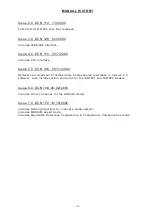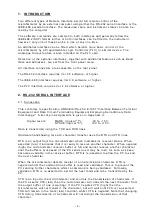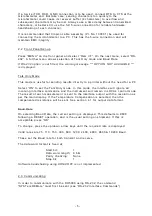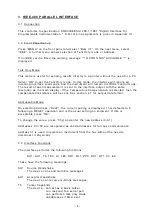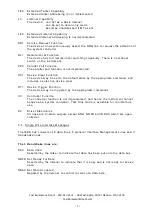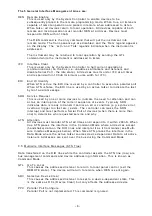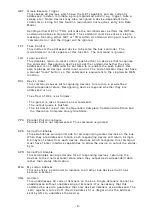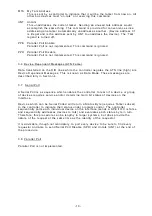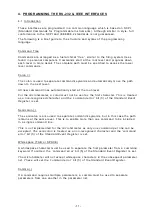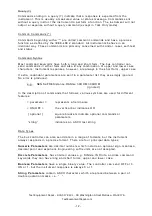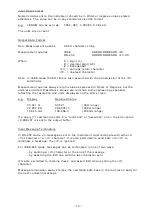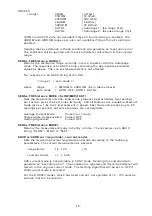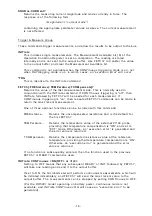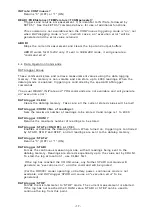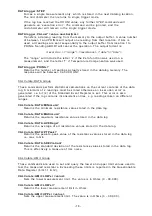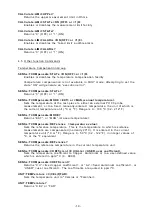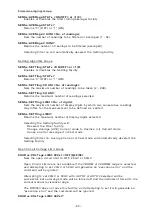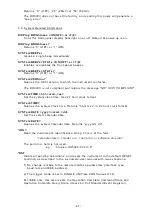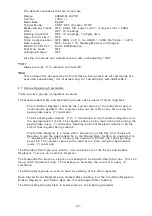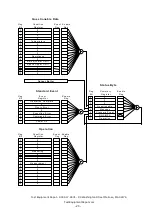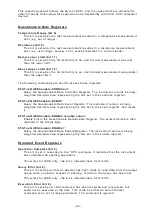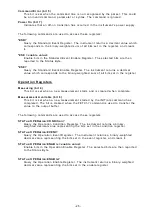
- 10 -
MTA
My Talk Address
This is sent by a controller to indicate that it will be the talker from now on. All
other bus devices must “un-ta lk” on receiving this command.
UNT
Untalk
This unaddresses the current talker. Sending an unused talk address would
accomplish the same thing. This command is provided for convenience since
addressing one talker automatically unaddresses another. (Device address 31
is illegal and is the address sent by UNT to unaddress the device). The ‘Talk’
legend is turned off.
PPE
Parallel Poll Enable
Parallel Poll is not implemented. This command is ignored.
PPD
Parallel Poll Disable
Parallel Poll is not implemented. This command is ignored.
3.6 Device Dependent Messages (ATN False)
Data transferred on the DIO lines while the controller negates the ATN line (high) are
Device Dependent Messages. This is know n as Data Mode. These messages are
described fully in Section 4.
3.7 Serial Poll
A Serial Poll is a sequence which enables the controller to learn if a device or group
of devices requires service and/or determine multi bit status of devices on the
interface.
Devices which can be Serial Polled will return a Status Byte (requires Talker subset)
to the controller to indicate their status under program control. The controller
sequentially polls each individual device on t he interface (sends a SPE if IFC is false
and sequentially addresses devices to talk) and evaluates each status byte in turn.
Therefore, this procedure can be lengthy in larger systems, but does provide the
nature of the request at the same ti me as the identity of the requestor.
It is advisable, though not mandatory, to po ll every device to be sure to find every
requestor and also to send Serial Poll Disable (SPD) and Untalk (UNT) at the end of
the procedure.
3.8 Parallel Poll
Parallel Poll is not implemented.


